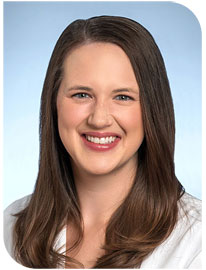Dermatitis/Eczema
Have you noticed a persistent rash on your baby’s face?
Does your older child have any red, itchy rashes that keep coming back? If so, your child may have a form of eczema known as atopic dermatitis (AD). AD is the most chronic and severe type of eczema and can be a lifelong problem for some people.
Atopic Dermatitis
Atopic dermatitis is often inherited and is seen most frequently in young children. In fact, approximately 10 to 15% of babies will develop atopic dermatitis at some point in infancy1. The disease causes red, warm, and tender patches, most often on the face, that can be intensely itchy.
So, how can you tell if your baby has atopic dermatitis? In infants, the rash will appear suddenly, and will look like a dry, scaly and itchy patch. It usually occurs on the scalp or face, (especially on the cheeks), although it can show up anywhere on the body. The patches may bubble up, then ooze and seep fluid, and the itching may come and go. Often, the infant will scratch the itch by rubbing up against furniture or carpeting, and the itching may become so intense, he or she may have trouble sleeping. Unfortunately, the prolonged scratching can also cause skin infections.
Older children (age two to puberty) will generally develop a rash that occurs in the creases of the elbows or knees. The rash may also occur on the neck, wrists, ankles or legs. Over time, the atopic dermatitis may develop bumps, and the skin may change color by lightening or darkening.
Additionally, the skin may become thicker, turn leathery, and possibly even develop knots, due to the constant scratching. Some children state that the patches eventually begin to itch all the time, over the area where the skin has thickened.
Treatment Options
So what are the treatment options for AD? Unfortunately, there is no cure for atopic dermatitis, although some children will outgrow the disease by age 10 or so. There are, however, a lot of treatment options that can help with the symptoms. Keeping the symptoms in check will help prevent the disease from worsening, relieve some of the pain and itching, reduce emotional stress, and prevent infections and thickening of the skin.
One of the most important means of treating atopic dermatitis is to keep the skin moisturized. Avoiding long, hot baths and using moisturizers liberally, especially immediately after a bath, will help keep the skin hydrated. Your dermatologist may have recommendations for a particular type of moisturizer that may work best for your child’s skin type.
Also, pay attention to irritants that may make the atopic dermatitis flare up. These may include particular soaps, dust, perfumes, animal dander, and even certain foods. Keep a diary of flares of the rashes, and any new irritants that your baby may have come into contact with immediately before the flare-up. Once you have determined the items that aggravate the dermatitis, be diligent about avoiding them.
If your baby is scratching at the lesions, try putting on a pair of mittens or even cotton socks. Make sure the baby’s nails are trimmed down and smooth, as this decreases the chance that your baby may puncture the skin. Speak to your dermatologist about using topical creams or other medications to control the itching.
Keeping your baby’s atopic dermatitis controlled will likely require a multi-pronged approach from both you and your dermatologist. And while it may seem like a lot of work, keeping your child’s atopic dermatitis under control will go a long way toward keeping your child comfortable and happy, both now and in the future.
Latest News
Dermatology Associates welcomes Dr. Paige Winter
Dermatology Associates is pleased to announce that Dr. Paige Winter joined our practice August 1, 2024.
Meet Paige Winter, M.D.
Dermatology Associates welcomes Dr. Lauren Tisdale
Dermatology Associates is pleased to announce that Dr. Lauren Tisdale joined our practice in October, 2024.
Meet Lauren Tisdale, M.D.
More News
Read our Fall Newsletter!
We encourage you to read and download the Fall 2024 Newsletter from Dermatology Associates of the Tricities and learn about our ongoing efforts to enhance Patient care.
View Our Fall Newsletter
Staff Picks
Amy Burton, LE
Kingsport, TN Cosmetic Center
Amy's Staff Pick is SkinCeuticals Phloretin CF because "it helps with the texture and tone of her skin while protecting it."
View Amy's Pick
Articles

Mohs Surgeon, Dr. Erin Reid featured in Tri-Cities Medical News

Health and Wellness Magazine
View all Health and Wellness Articles

Dermatology Associates advances the science of skin cancer research by donating funds to the Skin Cancer Foundation . We want our patients to know that we understand the burden of skin cancer and want to offer both excellent treatment now and look forward to scientific advances in the future.
Visit SkinCancer.org








